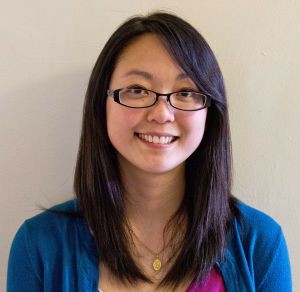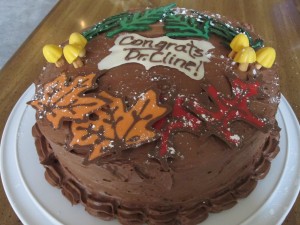Susan Cheng
 Susan Cheng is an ecosystem ecologist and Ph.D. candidate in the Department of Ecology and Evolutionary Biology at the University of Michigan. She received her BA in Environmental Science at Columbia University, and worked in environmental consulting and environmental education at Cornell University Cooperative Extension in NYC before starting grad school. Her work explores how interactions between the atmosphere and forests affect Earth’s climate.
Susan Cheng is an ecosystem ecologist and Ph.D. candidate in the Department of Ecology and Evolutionary Biology at the University of Michigan. She received her BA in Environmental Science at Columbia University, and worked in environmental consulting and environmental education at Cornell University Cooperative Extension in NYC before starting grad school. Her work explores how interactions between the atmosphere and forests affect Earth’s climate.
Susan participated in a number of esteemed undergraduate research experiences at Lamont-Doherty Earth Observatory, Harvard Forest, and NOAA. She recalls the many generous mentors from her undergraduate and graduate research experiences, and has made a point to pass on their wisdom by dedicating her time to mentoring others. She was co-mentor for the University of Michigan Biological Station REU during her last dissertation field season, and has also mentored for the University of Michigan BioKIDS program and facilitated her department’s first year graduate student mentoring program.
Susan is excited to defend her dissertation this May at the University of Michigan. Her research addresses the impacts of atmospheric and forest systems on climate change by identifying how interactions between clouds and forest canopy structure impact leaf photosynthesis and ecosystem carbon uptake through changes in light availability.
She plans to start a postdoc afterwards at Cornell University, where she will work on integrating field measurements with Earth system models to improve our understanding of the nitrogen cycle.
“I enjoy working across disciplines because I can ask bigger-picture questions and interact with others that help me see my study systems from new perspectives. By learning how to think across disciplines and working on diverse teams, I think the scientific community can expand the impact of our research and move closer to having a complete understanding of how the Earth functions,” she explained.
Susan joined ESWN in 2012. She described the group’s Facebook posts, tweets, and conference events as a constant source of support that has made her a better scientist and mentor.
“I hope to give back to the ESWN community more over the years, and look forward to having more conversations with members both virtually and in person,” she told us.

Outside of the lab, Susan enjoys translating her science through baked goods. The cake pictured was made to celebrate her colleague’s dissertation defense. A description of the cake can be found here.
To learn more about Susan’s research projects, visit https://susanjcheng.wordpress.com/.
